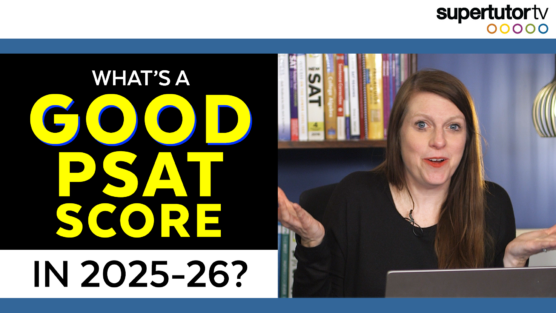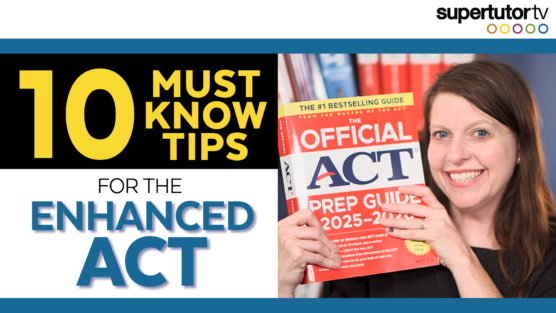Are you taking the ACT® soon and worried about all those questions you don’t know how to answer? Guessing may seem like a concept rooted in luck, but closing your eyes and randomly choosing an answer choice is not a great strategy. Making an informed guess can increase your chances of getting the question right significantly and will bring you one step closer to achieving a perfect score!
Times when it is appropriate to guess on the ACT®:
1. When it is time to move on
On the ACT®, pacing is a must. Before you take your official ACT®, practice each section and understand how much time you can allot to each question.
How do you know it’s time to move onto the next question? You’ve read the question, done some work on it, but you still don’t know the answer. At this point, it’s likely you’ve at least narrowed it down and are left with two answer choices. From there, you have a 50/50 chance of getting it right.
2. When you’ve run out of time
Finishing the ACT® is a brutal race that sometimes leaves you in the dust. If you’re struggling to finish a section and the proctor yells the five minute warning when you’ve got 30 questions left, it is okay to pick your favorite letter and fill it in for the rest of the questions, then try to back track on a few of them and actually attempt in the time remaining.
3. When you’re faced with a time consuming question
Understanding what types of questions are time consuming is a skill that comes with practice. If you know you struggle with time, skipping these is a great strategy: they’re worth no more points than any other question and they can take two or even three times as long to complete.
On the reading section, look for questions that use the word “EXCEPT,” “NOT” and “LEAST.” Because you must find three or four pieces of evidence to confirm you got the question correct, these might be questions you want to move on from.
On the math section, pattern questions, word problems, and problems for which you don’t completely remember the formulas can also slow you down.
On the science section, many students struggle with the “dueling scientist” or “dueling students” section for which you have to read long, confusing paragraphs and try to dig out the relevant information. In addition, the last questions in each science passage are typically more difficult and involve more synthesis between multiple pieces of information, and therefore take more time.
So what do you do when it’s time to guess?
1. Use process of elimination
You’ve been using process of elimination your whole life and it’s going to come in handy on the ACT®. Out of four answer choices, there’s typically one or two that are completely ridiculous. This goes for every section. Go fast on the first pass and try to eliminate one or two answers quickly.
2. Eyeball it
In the math section, though questions are not necessarily drawn to scale for geometry, they usually are. You can look at the picture and eyeball it and from there and probably be left with a 50/50 chance of answering correctly. For word problems, if the question tells you the speed at which someone runs and you need to find half that speed, you can eyeball what the answer will be and this gives yourself some brain power behind a random guess.
3. Find the main idea of the passage
With reading passages, if you can gather what the main idea was, that can increase your probability of answering choices correctly. Even if you can’t find that tiny detail in the passage the question is looking for, looking at the bigger picture can help you choose the right answer choice.
4. How NOT to guess!
NEVER guess on an answer choice just because you recognize it from the passage. Many times, every wrong answer on the ACT® uses words or phrases from somewhere in the passage. Recognition will NOT help you identify any correct answers on the ACT®!
You’re ready!
Guessing should never be your go-to move on the ACT®. But, when you have to guess, use these strategies to guess smarter.




